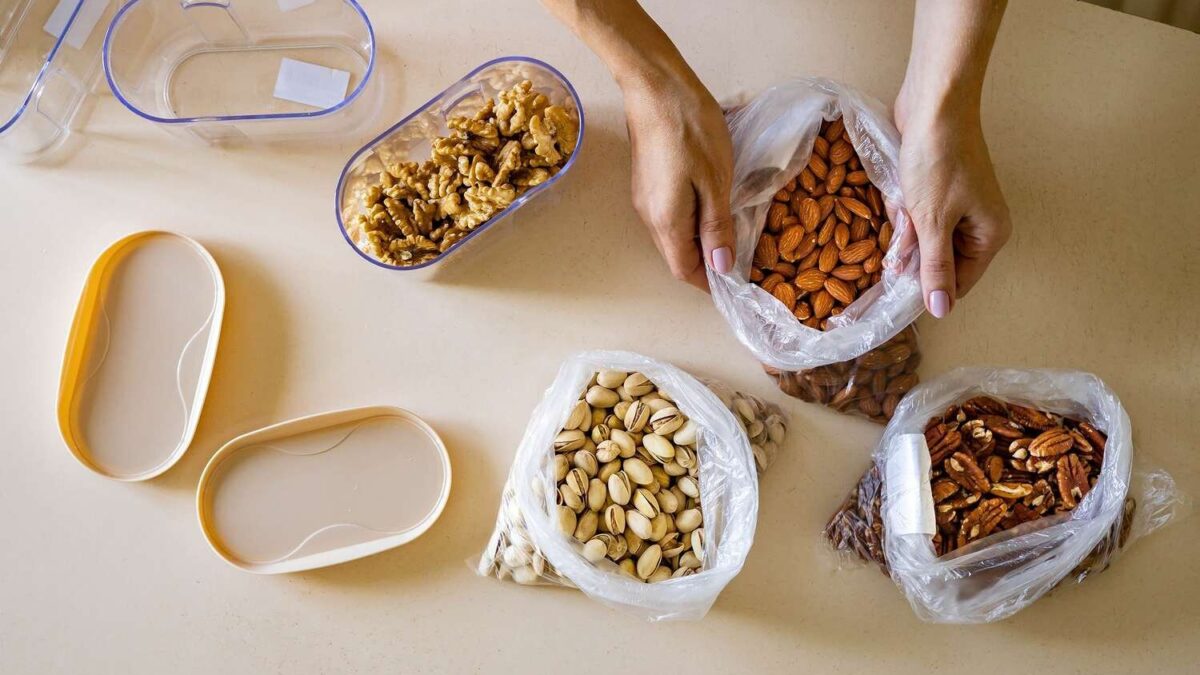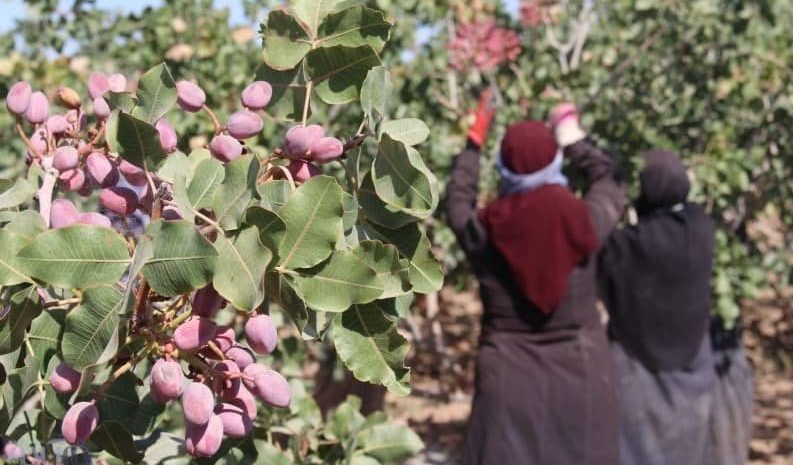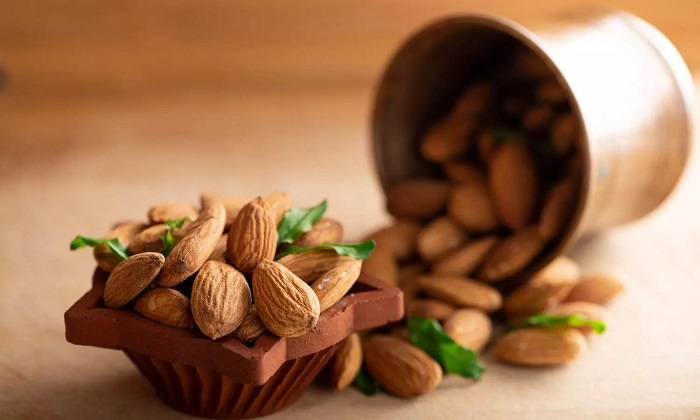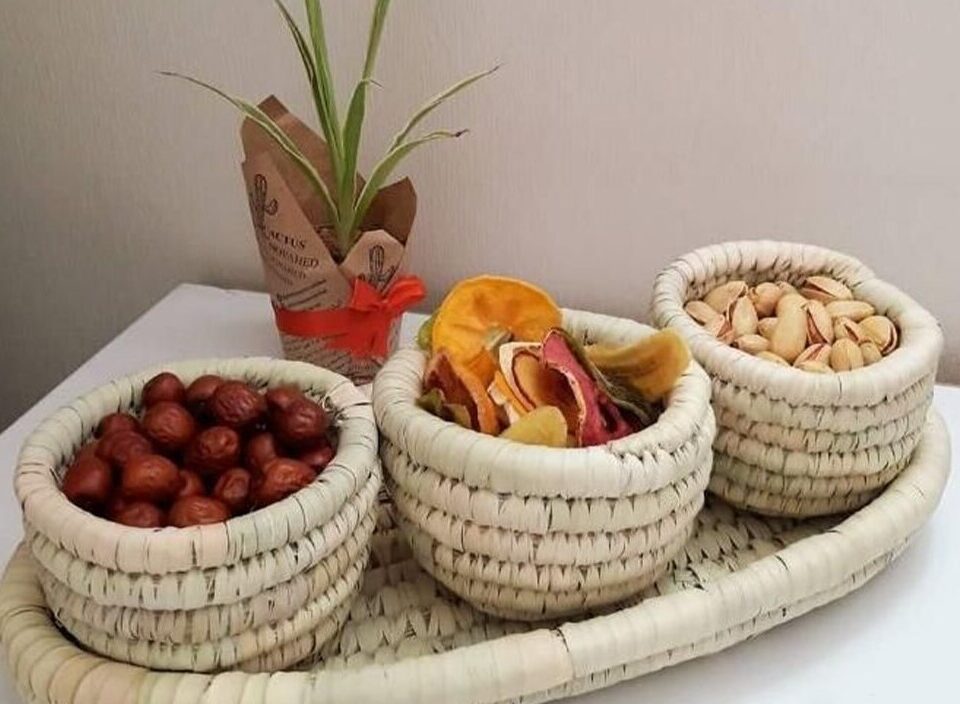
Special Iranian Spices for Digestive Health

History of Spice Use in Iran
How to Store These Products for Maximum Freshness
Nuts and dried fruits are highly nutritious and convenient foods, but to maintain their freshness, flavor, and nutritional value, proper storage is essential. Both nuts and dried fruits are susceptible to spoilage, especially when exposed to heat, air, and moisture. Here’s how you can store them correctly to ensure they stay fresh for as long as possible.
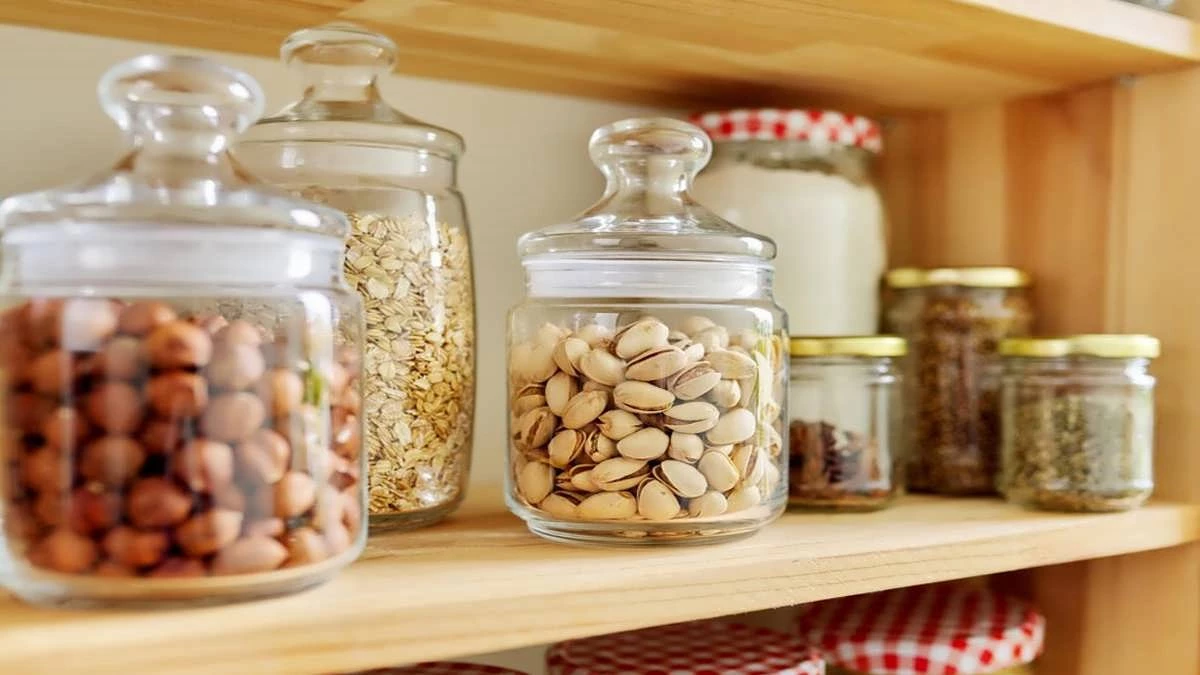
Proper Storage of Nuts and Dried Fruits
1. Store in a Cool, Dry Place
Why It Matters:
Heat and moisture are the main enemies of nuts and dried fruits. Exposure to these elements can cause nuts to turn rancid and dried fruits to harden or spoil. A cool, dry place helps slow down the oxidation process, which can lead to off-flavors and a decrease in nutritional value.
Best Practices:
- Keep nuts and dried fruits in a cool, dry pantry or cupboard, away from direct sunlight and sources of heat such as stoves or ovens.
- The ideal temperature for storing nuts and dried fruits is below 20°C (68°F).
Tip:
If you live in a warm or humid climate, you may want to store your nuts and dried fruits in the refrigerator or freezer for extra protection.
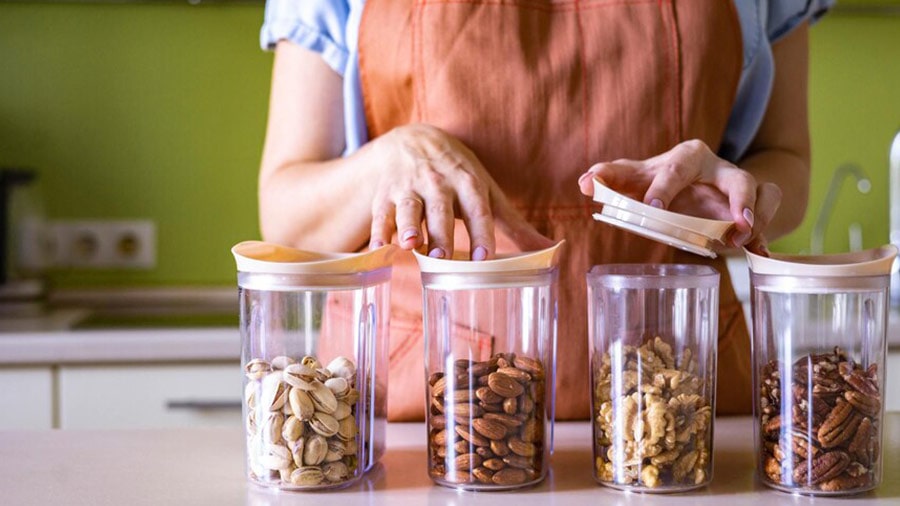
Proper Storage of Nuts and Dried Fruits
2. Use Airtight Containers
Why It Matters:
Exposure to air can cause nuts to oxidize, leading to rancidity, while dried fruits can absorb moisture from the air, losing their texture and flavor. Storing them in airtight containers keeps out moisture, air, and pests, ensuring maximum freshness.
Best Practices:
- Store nuts and dried fruits in airtight glass jars, plastic containers, or resealable plastic bags. Ensure the lids are tightly sealed.
- You can also use vacuum-sealed bags for long-term storage, as they remove excess air and extend shelf life.
Tip:
Divide large quantities into smaller containers. This way, you only open the portion you’re using, reducing exposure to air.
3. Refrigeration for Longer Shelf Life
Why It Matters:
Refrigerating nuts and dried fruits can extend their shelf life significantly by protecting them from heat, moisture, and pests. Nuts, in particular, contain oils that can turn rancid at room temperature if stored for too long.
Best Practices:
- For nuts, refrigerate them if you plan to store them for more than three months. This helps prevent the oils from becoming rancid.
- Dried fruits can be refrigerated to maintain their moisture content and freshness, especially if you live in a humid environment. However, refrigeration can sometimes harden dried fruits, so it’s best to store them in an airtight container to maintain their texture.
Tip:
Allow refrigerated dried fruits to come to room temperature before eating to restore their natural texture and flavor.

Dried Fruits in Refrigeration
4. Freeze for Long-Term Storage
Why It Matters:
Freezing nuts and dried fruits is an excellent way to extend their shelf life for up to a year or more. Freezing slows down the oxidation process, preserves the nutritional value, and prevents spoilage.
Best Practices:
- Nuts: Place nuts in airtight containers or freezer bags, and store them in the freezer. Nuts can last up to 12 months in the freezer without losing flavor or nutrients.
- Dried Fruits: You can freeze dried fruits in resealable bags or airtight containers for up to a year. When thawing, dried fruits may absorb some moisture, so it’s best to use them in recipes or consume them within a few days of defrosting.
Tip:
Label your containers with the date of storage so you can track how long they’ve been in the freezer.
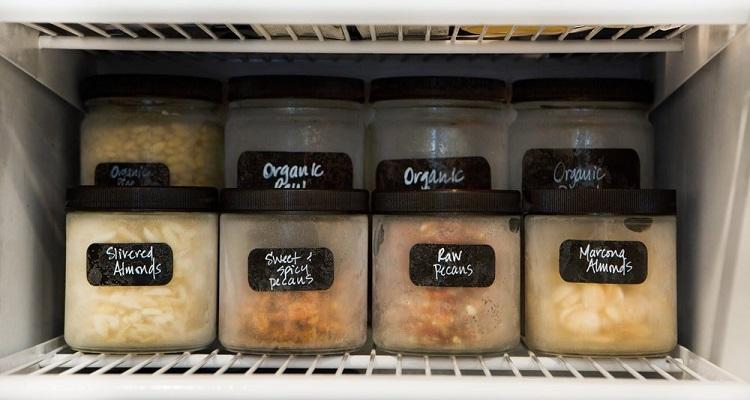
Dried Fruits in Freeze
5. Keep Away from Strong Odors
Why It Matters:
Both nuts and dried fruits can absorb odors from surrounding foods, which can alter their taste. Storing them near strong-smelling foods like onions, garlic, or spices may cause them to take on unwanted flavors.
Best Practices:
- Store nuts and dried fruits in sealed containers, away from foods with strong odors, to preserve their natural flavors.
- If storing in the refrigerator or freezer, use odor-proof containers to avoid cross-contamination of flavors.
6. Watch Out for Signs of Spoilage
Why It Matters:
Even with proper storage, nuts, and dried fruits can eventually spoil. It’s important to regularly check your stored products for signs of rancidity or spoilage.
Best Practices:
- Nuts: Rancid nuts have a bitter, sour, or “off” smell and taste. If you notice this, it’s best to discard them. Fresh nuts should smell pleasant and taste rich.
- Dried fruits: Look out for mold, discoloration, or an overly dry and brittle texture. If the fruits have hardened beyond usability or developed a sour smell, it’s time to throw them away.
Tip:
For nuts, toasting them in the oven for a few minutes can help revive the flavor if they’ve been stored for a while and have lost some of their freshness (but not if they’ve gone rancid).
7. Use Desiccants for Extra Moisture Control
Why It Matters:
Excess moisture can cause nuts to become soggy and dried fruits to spoil. Using a desiccant-like silica gel pack in your storage containers can help absorb any residual moisture and maintain dryness.
Best Practices:
- Place silica gel packs (the kind you find in shoe boxes or product packaging) in your containers with nuts or dried fruits to keep them dry. Be sure not to let the desiccant come into direct contact with the food.
- Alternatively, you can use food-safe moisture absorbers designed for pantry items.
Tip:
For a natural alternative, you can use dry rice grains in a small muslin bag to help absorb moisture in containers.
8. Buy in Small Quantities if Possible
Why It Matters:
The longer nuts and dried fruits are stored, the greater the chance of them losing flavor or going bad. Buying in smaller quantities allows you to use them while they are at their freshest.
Best Practices:
- Purchase smaller quantities of nuts and dried fruits if you don’t plan to use them immediately.
- If you buy in bulk, separate what you’ll use right away from what you’ll store for later, and follow the long-term storage guidelines.
Tip:
Rotate your stock, always using the oldest items first to ensure freshness.
Storage Timelines for Nuts and Dried Fruits
- Room Temperature:
- Nuts: 3-6 months
- Dried Fruits: 6 months (if stored properly in airtight containers)
- Refrigerator:
- Nuts: 6-12 months
- Dried Fruits: 6-12 months
- Freezer:
- Nuts: Up to 12 months or more
- Dried Fruits: Up to 12 months
Conclusion
Proper storage of nuts and dried fruits ensures that they retain their flavor, texture, and nutritional value for as long as possible. By storing them in cool, dry places in airtight containers, refrigerating or freezing when necessary, and keeping them away from moisture and strong odors, you can extend their shelf life and enjoy fresh, healthy snacks whenever you want. Follow these guidelines to make the most of your nuts and dried fruits, and enjoy their benefits for longer!

